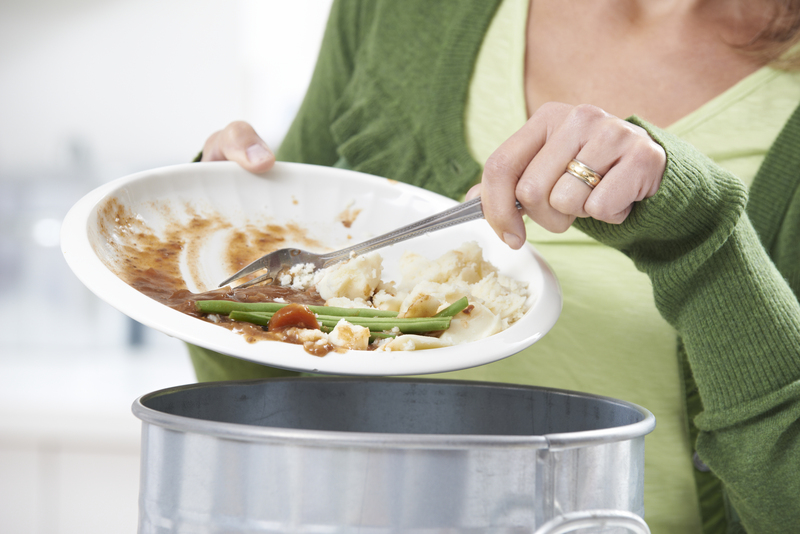Cost-Effective Solutions for Bulky Waste Item Disposal
Bulky waste items, from old sofas and broken appliances to garden debris and renovation rubble, present a unique challenge for both homeowners and businesses. Not only do they consume space, but their size and weight make disposal costly and complicated. Thankfully, there are many cost-effective solutions for bulky waste item disposal that are both practical and environmentally sound. This comprehensive guide will walk you through the best disposal strategies, their advantages, and tips to keep your costs (and environmental impact) as low as possible.

Understanding Bulky Waste and Why Proper Disposal Matters
Before diving into the various affordable ways to dispose of large items, it's important to understand what constitutes bulky waste. Generally, bulky household waste refers to items too large for standard curbside collection, such as:
- Furniture (sofas, beds, wardrobes)
- White goods (refrigerators, washing machines, ovens)
- Electronics (TVs, computers)
- Carpets and mattresses
- Large garden waste (tree branches, old play equipment)
- Construction materials (tiles, doors, windows)
Disposing of these items incorrectly can lead to environmental damage, safety issues, and even hefty fines. That's why exploring cost-saving large waste disposal solutions is crucial for responsible waste management.
Why Disposal Costs Can Be High
Several factors make bulky waste disposal pricier than regular garbage removal:
- Special Handling: Bulky items may contain hazardous materials or need to be disassembled.
- Transportation: Their size requires more vehicle space, sometimes even specialized trucks.
- Disposal Fees: Landfills and recycling centers often charge extra for large items.
The good news? With some planning and knowledge, there are ways to save.
Top Cost-Effective Bulky Waste Disposal Options
Let's explore affordable large item disposal methods for both homes and businesses:
1. Utilize Local Council's Bulky Waste Collection
Many municipalities offer dedicated bulky waste pick-up services at little or no cost. Here's how to benefit:
- Research eligibility: Visit your local council's website or call to inquire about collections. Many hold free or discounted events annually or bi-annually.
- Schedule a pick-up: Book your spot early--sometimes there's a waiting list for collection days.
- Prepare items: Some councils require items to be dismantled or placed at the curb only the night before pick-up.
*Tip: Council-run programs may limit the number of items or types they'll collect. Always check what's accepted.
2. Recycling and Donation - Give Items a New Life
The greenest cost-effective solution for bulky waste item disposal is to keep items out of the landfill altogether.
- Sell or Give Away: If your furniture or appliances still work, use platforms like Facebook Marketplace, Craigslist, or donate via local charities and shelters.
- Freecycle networks: Post your unwanted goods for free pickup.
- Recycling Centers: Many electronics and appliances can be recycled at dedicated drop-off points--sometimes at no extra cost.
*Not only is this cheaper, it's sustainable and may even net you some cash.
3. Hire a Skip Bin or Dumpster - Group with Neighbors
For large clear-outs or renovations, hiring a skip bin or dumpster is efficient, but it can be expensive if you do it alone. For a more economical approach:
- Share costs: Team up with neighbors or family. One large skip shared among several homes dramatically reduces the price per household.
- Right size bin: Choose only the size you actually need--overestimating leads to wasted money.
- Compare providers: Don't settle for the first quote. Ask for discounts, especially if you're booking with others.
4. 'Man with a Van' Rubbish Removal Services
'Man and van' services are ideal for situations where you only have a few large items. This option is typically cheaper than full-service removals and skips:
- Pay by item or by volume: Many small businesses offer flexible pricing.
- Fast and convenient: They do the heavy lifting and disposal for you.
*Always check that any service provider is licensed and disposes responsibly.
5. Take-It-Yourself to the Local Tip or Recycling Centre
If you have a suitable vehicle, this is often the most budget-friendly way to get rid of bulky waste. Tips for savings:
- Check fees: Some facilities accept certain items (like electronics) for free or at a lower rate.
- Bring proof of residence: Many recycling centers are subsidized for locals.
*Plan ahead as some centers are only open at specific times or require pre-booking.
Money-Saving Tips for Bulky Waste Disposal
- Sort and combine smaller loads: Disassemble furniture to fit more in less space, potentially saving tip or skip hire fees.
- Separate recyclables: Metal, electronics, and clean timber can often be dropped off more cheaply or for free.
- Use community collection events: Watch local bulletin boards for spring/fall clean-ups or "hazardous waste drop-off" events--these may accept bulky items at reduced rates.
- Get quotes and negotiate: If hiring a service, shop around and don't be afraid to ask for a better deal, especially if you have multiple items.
- Don't wait: The longer you hold onto unwanted large items, the more they deteriorate--making future disposal more difficult and costly.
What About Business Bulky Waste?
Businesses, especially retail, hospitality, or construction, often face strict regulations around commercial bulky item disposal. To keep costs down:
- Negotiate ongoing contracts: Regular waste contracts can be extended to include occasional bulky pick-ups, often at a discounted rate.
- Partner with recycling firms: Some recyclers offer rebates for large metal, electronics, or wood load collections.
- Upcycle or repurpose: Items such as pallets, display units, or shelving can be reused or donated to community projects.
Environmental Considerations and Legal Responsibility
Always ensure your bulky waste disposal is environmentally sound and legally compliant:
- Duty of Care: You are legally responsible for ensuring your waste is disposed of by licensed providers.
- Keep documentation: Retain any receipts or collection notes, especially if dealing with trade waste.
- Never fly-tip: Illegal dumping can result in significant fines and criminal charges.
Choosing a cost-effective large item disposal method shouldn't mean cutting corners--safe, legal, and sustainable options are always best.
Frequently Asked Questions About Bulky Waste Disposal
What is the cheapest way to get rid of bulky items?
The most affordable option is usually local council 'free collection' events or donating/selling items directly. For the truly thrifty, community groups and online "free giveaway" platforms are the top choice.
Can I put large items out with the regular trash?
Generally, no. Most municipal waste services will not pick up large furniture or appliances left with your household trash. Always check local regulations to avoid fines.
Are there non-profit organizations that will pick up furniture for free?
Yes, many charities offer no-cost collection for gently-used items--furniture banks, Goodwill, Salvation Army, or Habitat for Humanity are well-known options. Book ahead as slots fill up quickly.
Can you recycle old mattresses or sofas?
Increasingly, yes. Specialized recyclers can break down mattresses into metal, wood, and fabric for reprocessing. Some areas have dedicated sofa recycling or mattress pickup programs at low cost.
How do I dispose of hazardous bulky items like refrigerators?
Items like fridges, air conditioners, and TVs require special handling due to coolants or electronic waste components. Many councils or authorized recycling centers accept them for proper treatment, sometimes subsidized.

Planning for Cost-Effective Future Bulky Waste Disposal
The best way to manage the cost of bulky item disposal is to plan ahead. Here are strategies to minimize headache and expense in the future:
- Buy for longevity: Invest in durable, quality items that won't need frequent replacing.
- Choose modular designs: Furniture or equipment that can be broken down is far easier (and cheaper) to dispose of.
- Ask retailers about "take-back" schemes: Some stores will collect old appliances or furniture when delivering new items.
- Keep documentation: Knowing what materials your items are made of makes recycling simpler.
Conclusion: Choose Your Cost-Effective Large Waste Removal Wisely
From council pickups and donation to strategic skip hire, there are many cost-effective solutions for bulky waste item disposal that won't hurt your wallet or the environment. Remember to:
- Explore all options: Sometimes a combination of methods (e.g., donation plus self-haul) is best.
- Think sustainably: Landfilling bulky waste should always be the last resort.
- Plan ahead: Advance preparation leads to the lowest cost and least hassle.
By following these steps, you'll free up space, help your community, protect the environment, and keep costs down--making large item disposal stress-free and affordable.